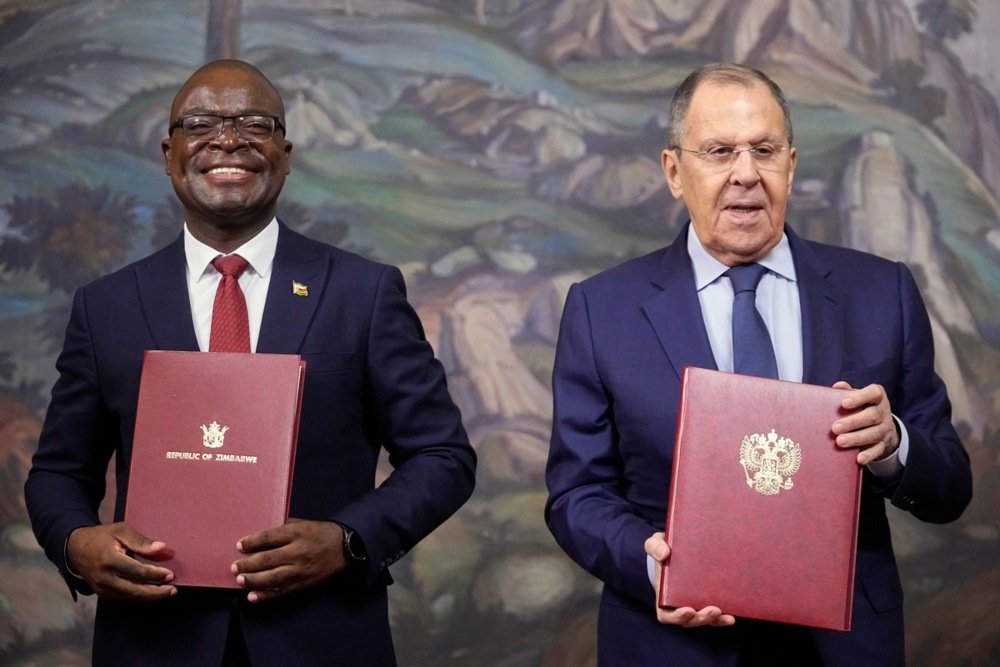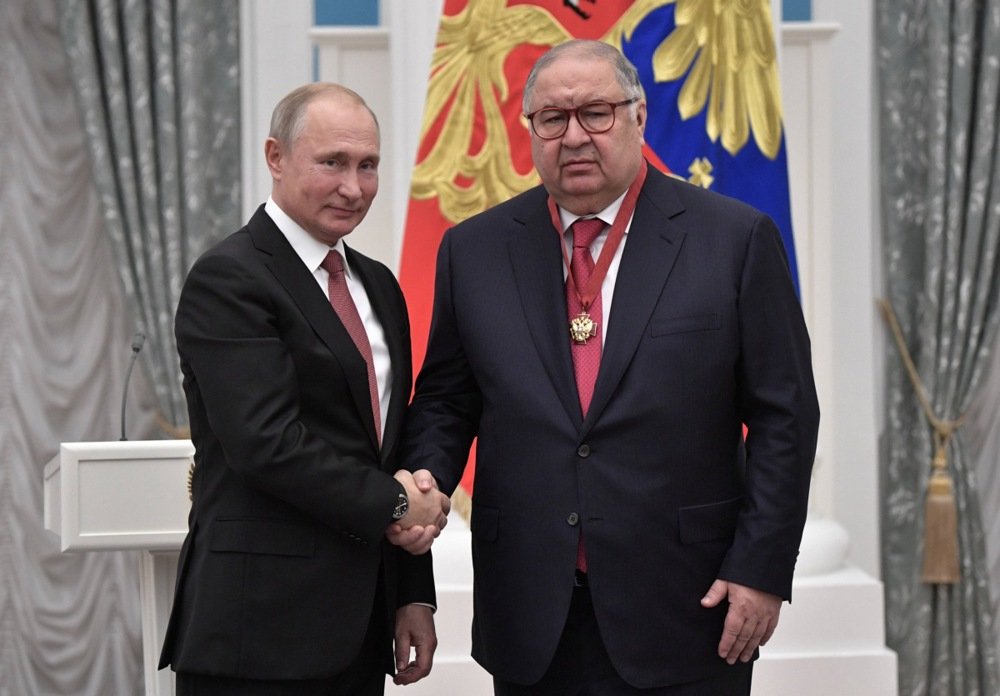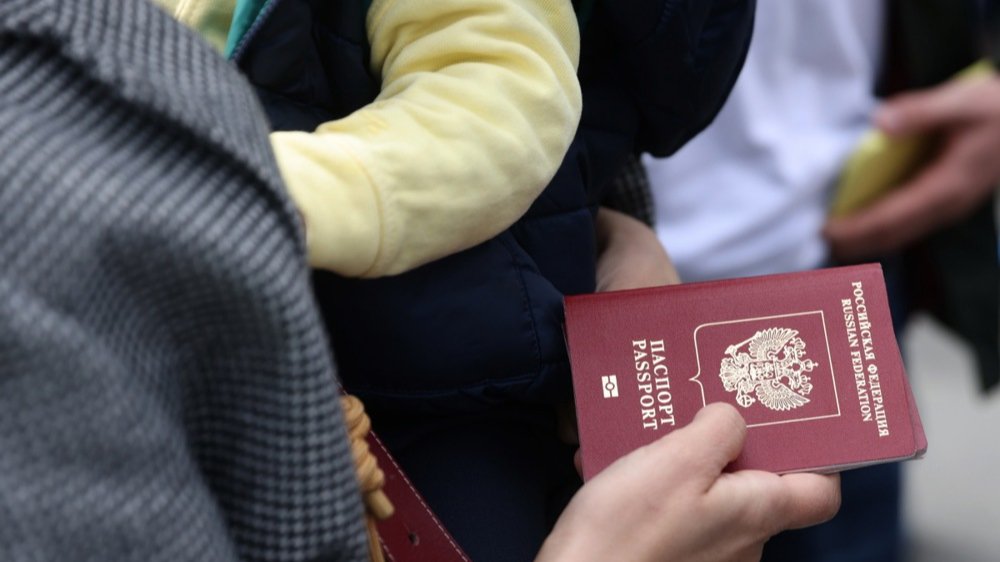A joint investigation by the independent Russian news outlet IStories and the Belgrade-based Crime and Corruption Reporting Network (KRIK) published earlier this month found that at least 204 Russians had received fast-tracked Serbian citizenship “in the interest of Serbia” since early 2022.
According to the investigation, among the beneficiaries were Kremlin-affiliated businessmen, defence contractors, FSB personnel, tech executives and professional athletes — people whose livelihoods require regular overseas travel. A Serbian passport allows holders unfettered access to the European Union, China, Japan and Iran, and Serbian citizens can more easily visit the UK, the US, Australia, New Zealand, and Canada, all places where Russians are considered potential threats to domestic security.
The Russian passport’s strength has actually improved since early 2024 due largely to Foreign Minister Sergey Lavrov’s diplomatic “speed-dating”.
Russia’s full-scale invasion of Ukraine and the resulting partial mobilisation caused a mass exodus among the country’s middle-class and working-age population. During the first year of Putin’s “special military operation”, almost 22,000 Russians attempted to enter the United States through the southern border, and many more flocked to Russia’s “near abroad” — former Soviet territories — and Southeast Asia, where they often overstayed their welcome. Now the days of Russians breezing through immigration and customs are long gone. Rather than being greeted as a welcome boost to a country’s tourist economy, Russians are increasingly viewed with suspicion.

Zimbabwe’s Foreign Minister Amon Murwira and Russian Foreign Minister Sergey Lavrov pose for a photo following talks in Moscow, 6 March 2025. Photo: EPA-EFE/PAVEL BEDNYAKOV / POOL
Despite all this, the latest Henley & Partners Index showed that the Russian passport’s strength has actually improved since early 2024. But a closer look reveals that this improvement is largely the result of Foreign Minister Sergey Lavrov’s “speed-dating” diplomatic outreach to various Asian, African, Middle Eastern and Oceanic governments. As a gesture of goodwill, developing nations from Myanmar to Malawi, to which most Russians give little thought, let alone have much desire to visit, unilaterally exempted Russia from entry requirements.
Meanwhile countries in the West continue to close themselves off to Russian visitors. An EU-wide airspace ban on Russian carriers has eliminated direct flights from Russia to most of Europe. Schengen visas are more costly and more time-consuming for Russians to obtain. Since September 2022, Brussels has suspended its visa facilitation arrangement with Moscow to discourage non-essential travel from an aggressor state.
For oligarchs like Bakalchuk and Usmanov, Central Asian passports are not so much a status symbol as an insurance policy: a practical step in uncertain times, when they could be forced out of Russia for good.
In this landscape alternative passports have emerged as a convenient workaround for affluent Russians seeking to travel, but travel is apparently not their only motivation for splitting their national allegiance. Between 2021 and 2024, Kyrgyzstan saw an increase of 1650% in Russians seeking to become naturalised citizens, a place to which Russians could already travel visa-free.
One of the 7,000 Russians who obtained Kyrgyz citizenship last year via a so-called “quadrilateral agreement” was Vladislav Bakalchuk, the estranged husband of Russia’s richest woman, Tatyana Kim. Bakalchuk also happens to be a close associate of Chechnya’s tyrant, Ramzan Kadyrov. Meanwhile, the Russo-Uzbek metals billionaire Alisher Usmanov is believed to have permanently relocated from Moscow to Tashkent, according to the most recent Forbes rich list.
For oligarchs like Bakalchuk and Usmanov, Central Asian passports are not so much a status symbol as an insurance policy: a practical step in uncertain times, when they could be forced out of Russia for good. The Putin regime could decide to prosecute them on trumped-up corruption charges, or a Ukrainian drone strike on Moscow could compromise their safety, or they could go the way of recent Russian generals and fall victim to an unfortunate car bombing.
Likewise, former Chelsea FC owner Roman Abramovich is reportedly living full-time in Istanbul, after being declared persona non grata by the EU and UK. Although European golden passports were once coveted by the Muscovite and St. Petersburg elite, the revocation of Cypriot and Maltese citizenship from Politically Exposed Persons (PEPs) on a first-name basis with Putin prompted them to shift their attention to the likes of Türkiye and the UAE.
As long as G7 nations continue to tolerate these sanctions blind spots, Putin’s cronies and other high-profile Russians with links to the Kremlin will not feel the full force of the punitive measures levied against them.
Both non-aligned countries boast similar “cash-for-passport” programmes, and they are able to push back against external pressure from the European Commission and the US Treasury Department’s Office of Foreign Assets Control (OFAC). Roughly 5,000 Russians took advantage of the $400,000 Turkish citizenship-by-investment scheme in the first six months of the Ukraine war; another 15,000 snapped up luxury properties in Dubai that same year. VK and Telegram founder Pavel Durov, fertiliser mogul Andrey Melnichenko, as well as MMA fighters Khabib Nurmagomedov and Khamzat Chimaev were all granted Emirati citizenship through a nomination-based procedure.

Vladimir Putin shakes hands with billionaire tycoon Alisher Usmanov during a ceremony in the Kremlin, Moscow, 27 November 2018. Photo: EPA-EFE / ALEXEY NIKOLSKY / SPUTNIK / KREMLIN POOL
For the privileged few Russians who can actually afford them, second passports are tantamount to a new lease on life, not least as at home they face hurdles associated with opening offshore bank accounts and the looming prospect of Putin introducing a new tax system to offset the last three years of capital flight.
As long as G7 nations continue to tolerate these sanctions blind spots, Putin’s cronies and other high-profile Russians with links to the Kremlin will not feel the full force of the punitive measures levied against them. If Western countries are serious about putting an end to the war they must adopt a zero-tolerance approach towards those brazenly flaunting their bought secondary citizenship.
Lower down the food chain, a sizable chunk of the country’s ordinary citizenry is done bearing the brunt of their commander-in-chief’s bloodlust against another Slavic state. The 10,500 pregnant Russian women who flew to Argentina to exploit that nation’s birthright citizenship law underscores the desperation. Closer to home, the National Statistics Service of Georgia (Geostat) revealed that of the 3,587 people who naturalised as Georgians last year, 2,361 were Russian.
From the perspective of anti-war draft dodgers and independent journalists, there are growing concerns that Putin could go down the path of Belarusian dictator Alexander Lukashenko and resort to weaponising passports to get back at those he has described as “traitors” and “scum”. In that event, Russian exiles risk being stripped of their legal status and condemned to statelessness.

